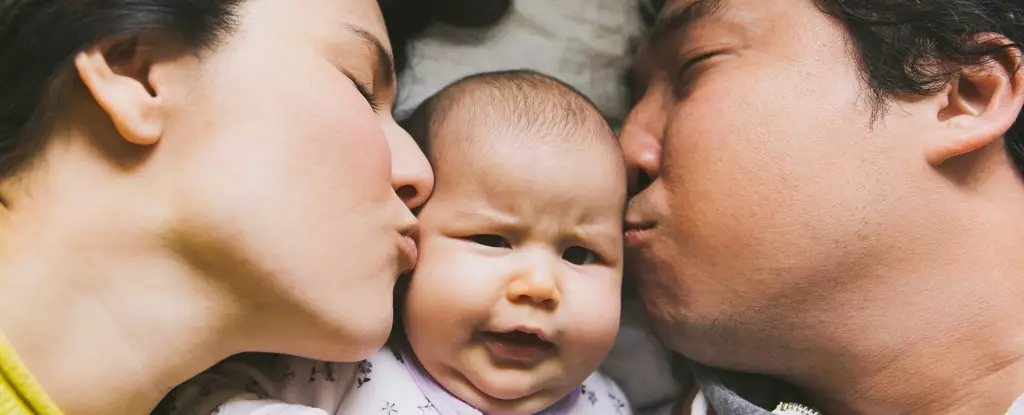It is perplexing how often specialized knowledge can cloud common sense. This phenomenon, known as the “curse of knowledge,” leads experts to mistakenly believe that their understanding is universally shared. As a clinical microbiologist, I sometimes forget that not everyone is aware of basic health considerations, especially in the context of newborn care. A recent TikTok video by Dr. Karan Raj highlighted a shocking reality: many parents and caregivers are unaware of the significant health risks associated with kissing newborns. Although it may seem harmless, this simple act can pose serious dangers, particularly because an infant’s developing immune system is acutely vulnerable.
The Fragility of a Newborn’s Immune System
At birth, a baby’s immune system is not fully equipped to fend off infections. Unlike adults, newborns possess fewer infection-fighting cells, leading to an increased risk of serious illnesses from pathogens that typically cause mild symptoms in older children or adults. For instance, the herpes simplex virus, commonly regarded as a nuisance for adults, can lead to grave complications for infants. If transmitted during close contact, such as kissing, the virus can result in catastrophic health conditions, including systemic infections that threaten vital organs. New parents might be shocked to learn that engaging in seemingly innocent behaviors could result in dire consequences for their infant’s well-being.
Pathogens Posing a Threat: A Closer Look
Several pathogens are particularly dangerous to newborns, with Group B Streptococcus (GBS) being a prime example. Found in many adults’ gastrointestinal tracts, GBS can silently exist without causing harm. However, when transmitted to newborns, it can lead to severe infections like meningitis, pneumonia, and sepsis. Additionally, strains of E. coli that are benign in adults can wreak havoc in infants, presenting an array of serious health issues. While expecting mothers and caretakers may have an abundance of information on feeding and sleep, knowledge about the microbial risks to newborns is often overlooked, warranting urgent attention and education.
Though it might feel awkward or uncomfortable, parents must advocate for their infant’s health by clearly communicating boundaries with visitors. Many well-meaning friends and family members may not consider the risk posed by kissing, as they lack the background knowledge that healthcare professionals possess. By encouraging an environment where it’s acceptable to ask others to refrain from kissing the baby, caregivers signal their responsibility and commitment to safeguarding their child’s health. Promoting this practice does not indicate paranoia; rather, it reflects a vital understanding of the intrinsic fragility of newborns.
While some may feel compelled to express affection through kisses, it’s pivotal to prioritize a newborn’s health over such gestures. For those wishing to maintain connections without compromising safety, there are alternative approaches. A friendly reminder to wash hands thoroughly can vastly reduce the risk of introducing harmful bacteria. Rather than kissing the face or mouth, consider giving soft pecks on the baby’s feet or the back of the head. When dealing with a cold sore or any type of infection, opting to postpone a visit may be the safest choice. If absolutely necessary, protective measures such as wearing a mask can help minimize risks.
A Loving Reminder: Prioritize Health Over Affection
In a world where showing love often manifests through physical touch, understanding the vital precautionary measures necessary when dealing with newborns is crucial. While kissing can seem innocent, the consequences of transmitting harmful pathogens can be tragic. By spreading awareness of these risks and promoting safe practices, we can collectively improve the health and safety of our most vulnerable population: newborns. Parents should never hesitate to voice their concerns about their child’s health, as vigilance and care are paramount. Ultimately, the love we show can be expressed in many forms—one of which may simply mean giving a little space to keep our littlest ones safe.

